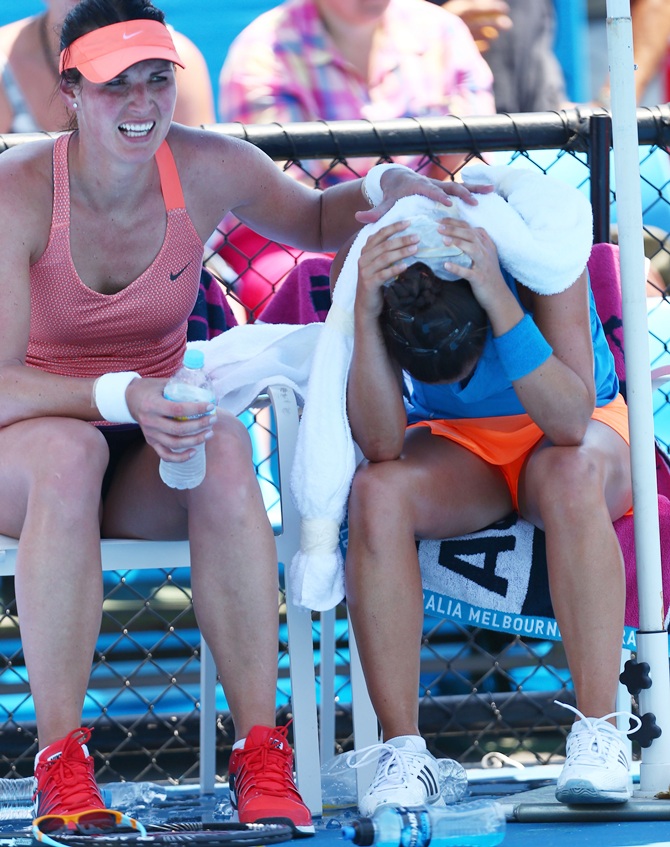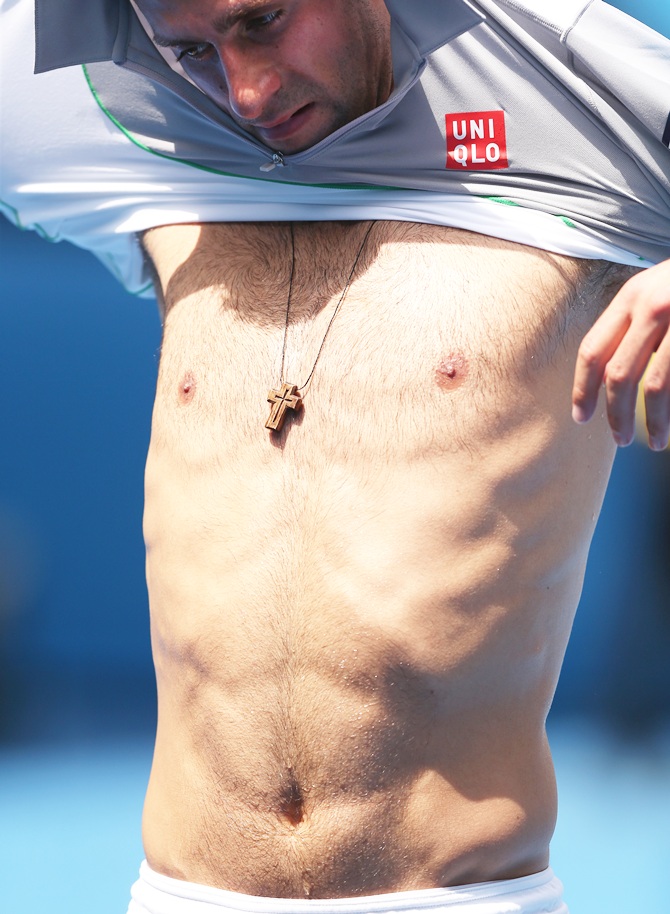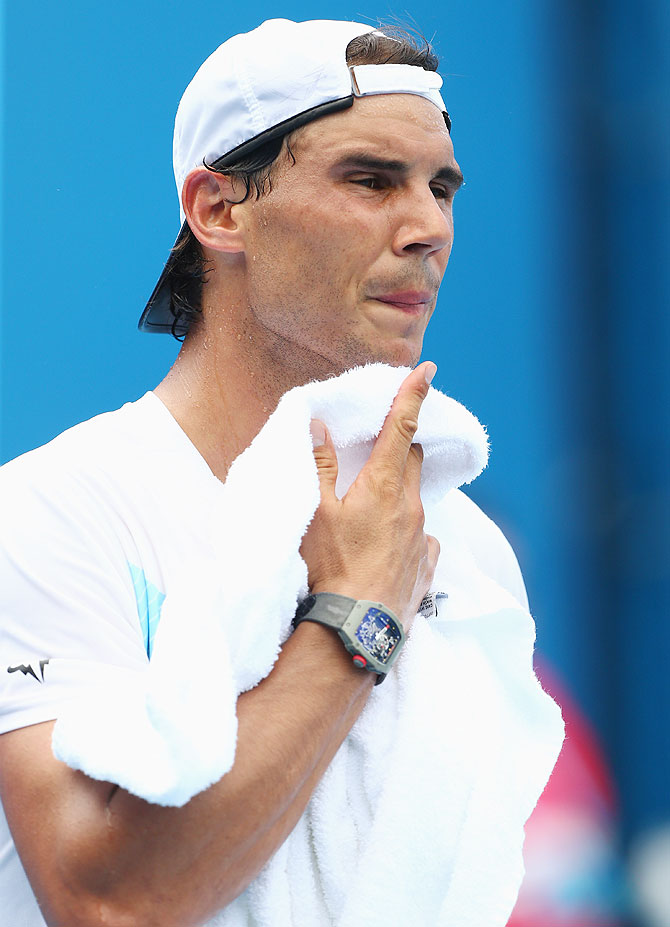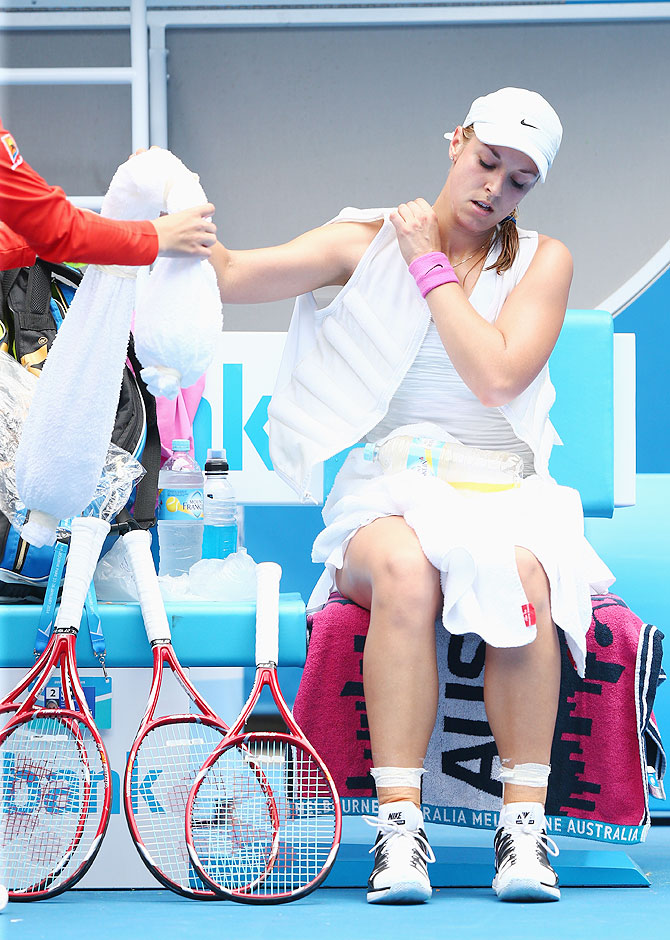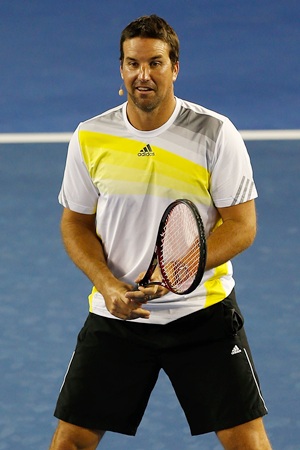 | « Back to article | Print this article |
Cover up or run risk of developing skin cancer: Australian Open officials to players
Slapping on the sun cream may be second nature to Australians but it seems some of the world's leading players are taking unnecessary risks by not wearing any protection against skin cancer at the opening Grand Slam of the year.
-PHOTOS: Heat stops play at Australian Open
'Protect yourself people'
Australian Open officials have been handing out sun cream and advising fans to cover up while play was suspended at MelbournePark on Thursday due to the excessive heat, as temperatures passed 40 degrees Celsius for a third straight day.
Defending men's champion Novak Djokovic took to Twitter to spread the message, saying "protect yourself people" but others, including World No 1 Rafael Nadal, have said they preferred not to use it at all.
'Players don't like it, when you're sweating it drips in your eyes'
"Players (don't like) that it doesn't feel great on your skin and also when you're sweating it drips in your eyes," said Paul Annacone, the former coach of Roger Federer and Pete Sampras and now in charge of Sloane Stephens.
"There's more maintenance involved but overall the long-term benefit and what it does to protect you, it's a non-issue. You've just got to figure out how to do it."
Annacone admits he did not use sun cream in his playing days but said he was now well aware of the dangers posed by avoiding protection.
"It's just discipline," he said. "It's like everything else. Once it becomes a habit, it's not that big a deal. The hard thing is making it happen."
Dangers of too much exposure to the sun have been highlighted
A spokesman for the ATP Tour said on Thursday that sun cream was readily available in the locker rooms and latex gloves were provided for players who did not want to get the cream on their hands.
The dangers of too much exposure to the sun have been highlighted by a number of cases over the last few years.
Australian John Newcombe, who won seven Grand Slam titles between 1968 and 1975, had non-melanoma skin cancer in 2013, having had a cancerous growth removed from his nose a decade before.
Spain's Felix Mantilla, who was diagnosed with skin cancer in 2006 and now runs his own skin-cancer foundation in Barcelona, would like the ATP Tour to adopt a system where players can have someone reapply cream at the end of each set.
Cautious Rafter
Former World No 1 Pat Rafter, now Australia's Davis Cup captain, was famous for wearing the white zinc sun paint often used by cricketers.
Rafter, who grew up in Queensland, said the dangers of exposing his skin to the sun had been drummed into him from an early age.
"We had tutoring, teaching about it," he said. "They used to come in and teach us all about it because where we lived is the number one capital for skin cancer, in Queensland.
"We were told at school, we were told when we played tennis, people would come in and explain to us all the time, so we were scared.
"I will have skin cancer removed at some stage but it's the best cancer to get. I get checked every six months, I'm very, very careful. I always keep applying, I wear long sleeves."
Rafter said he knew plenty of players who still went out to play unprotected.
"The Europeans come over here and get red noses and foreheads," he said.
"I tell them, 'mate you've got to wear a hat'. They say: 'oh, I'm OK' and I think, 'shit'.

© Copyright 2024 Reuters Limited. All rights reserved. Republication or redistribution of Reuters content, including by framing or similar means, is expressly prohibited without the prior written consent of Reuters. Reuters shall not be liable for any errors or delays in the content, or for any actions taken in reliance thereon.
